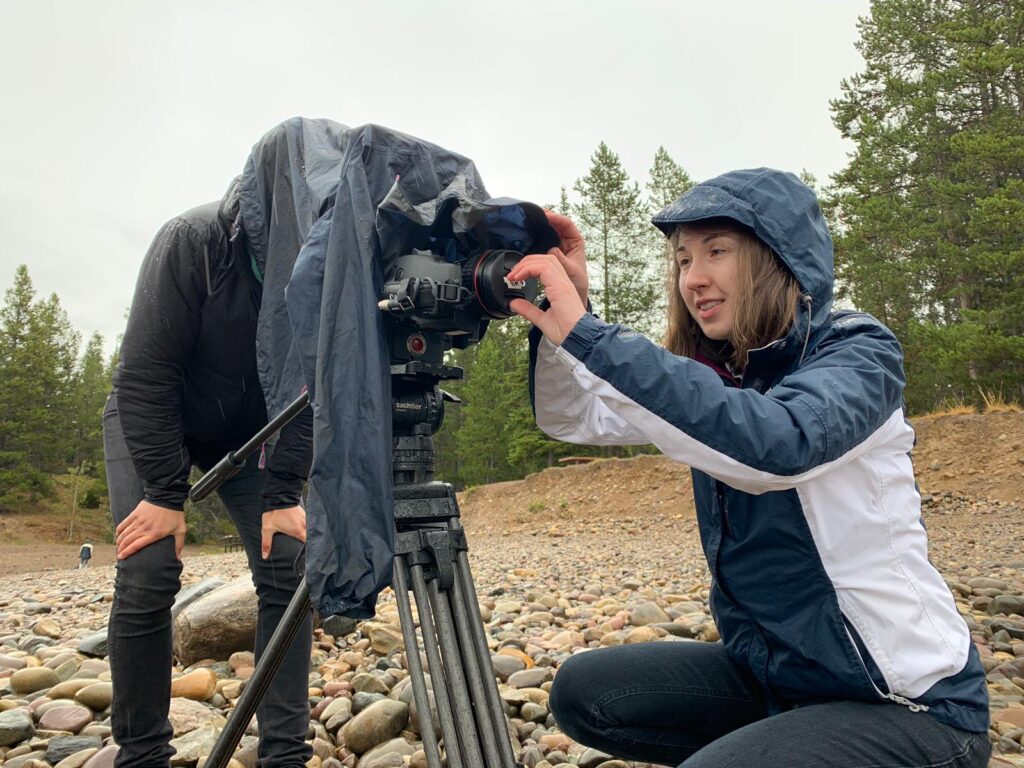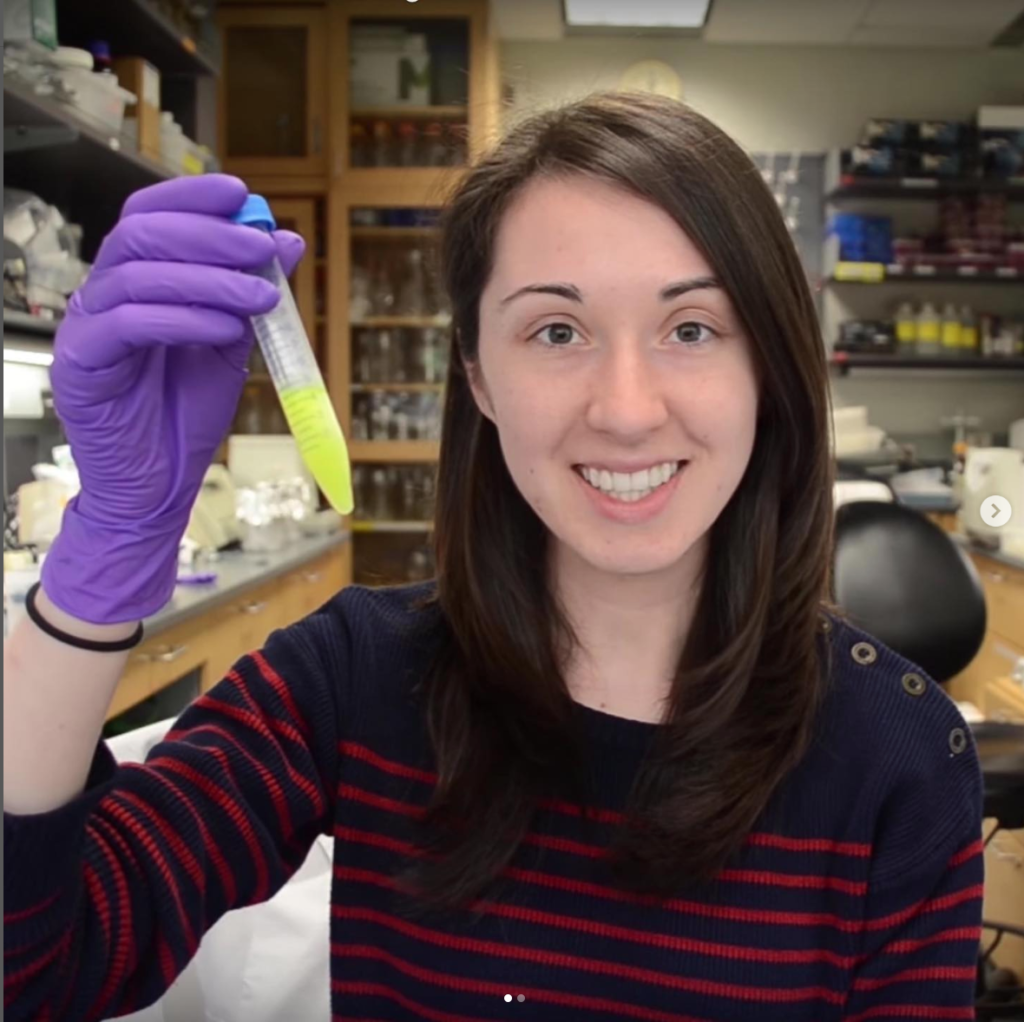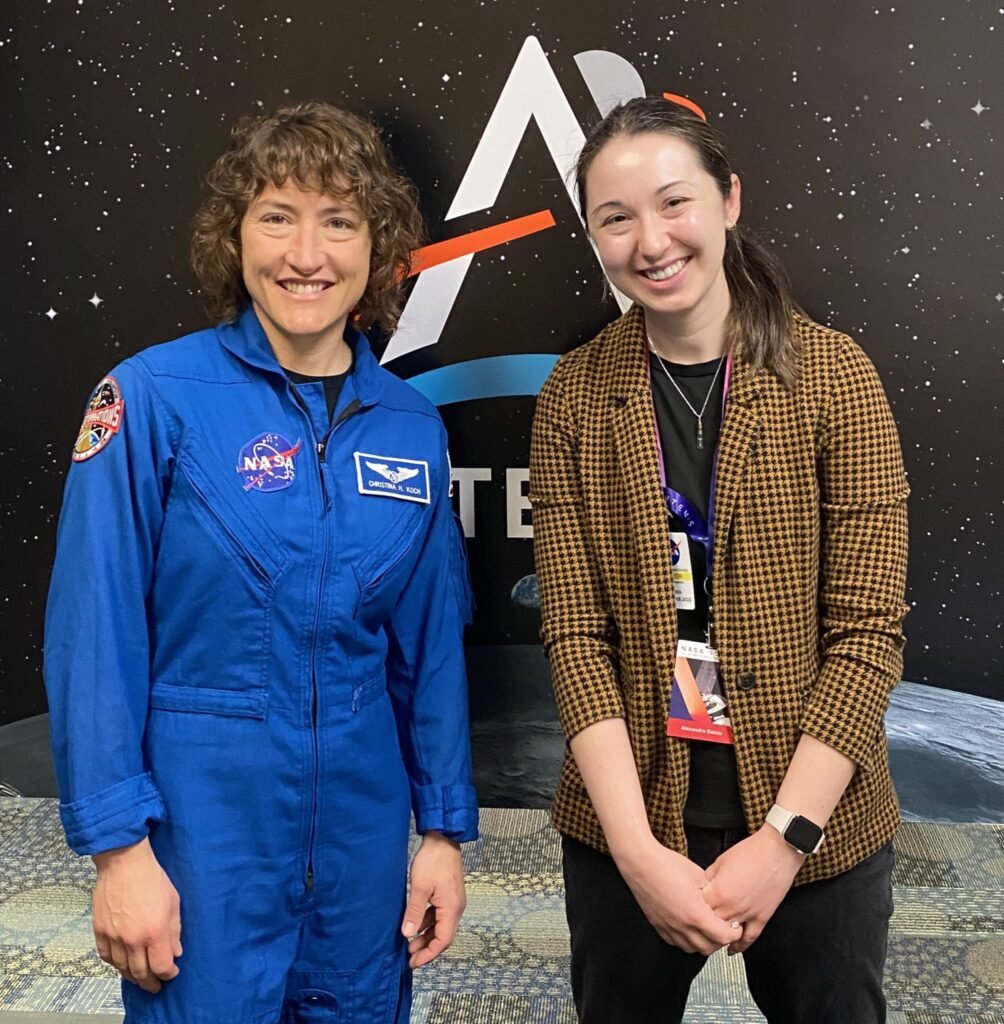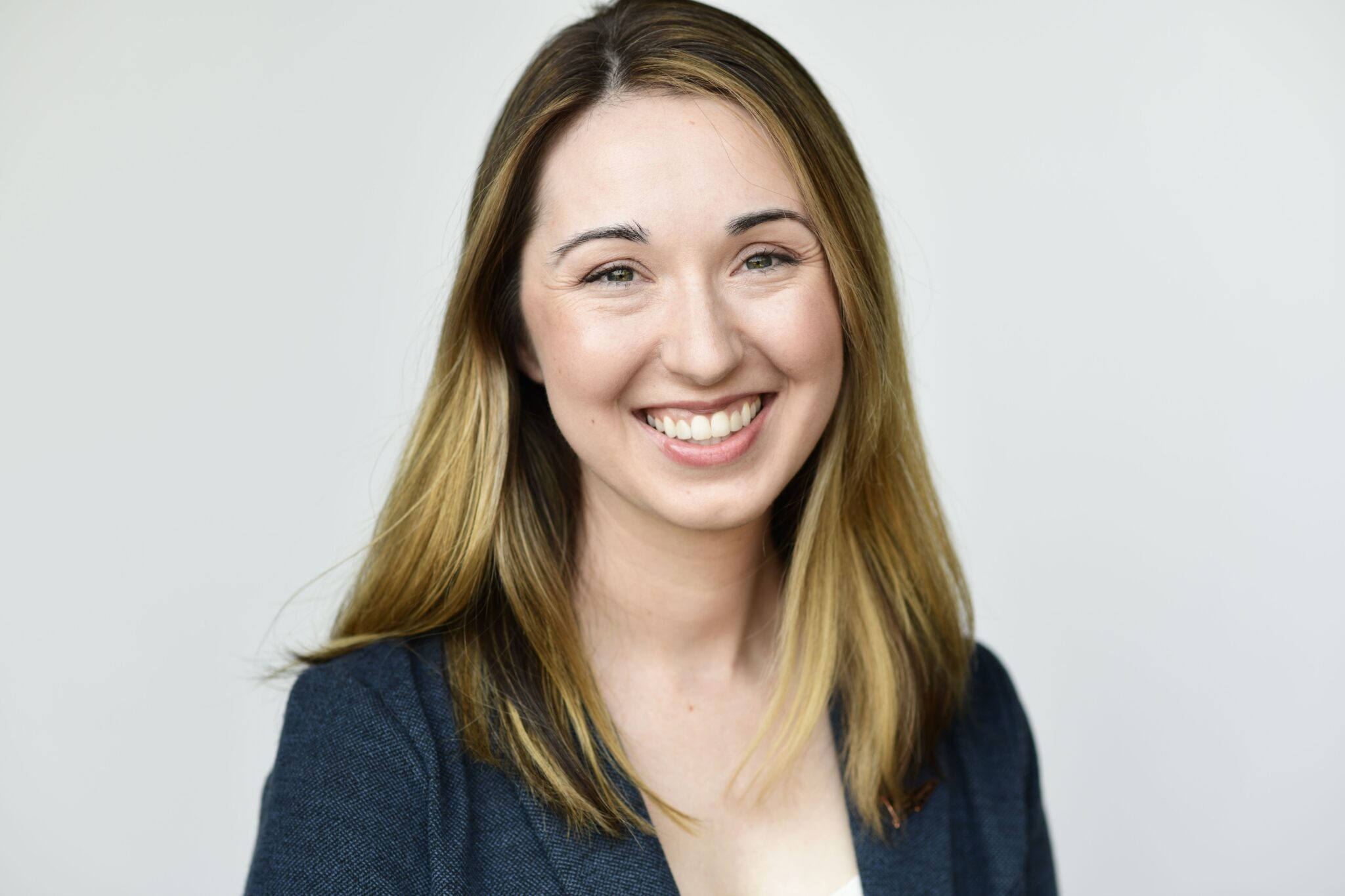“The blueprint of life lies within our genes, intricately woven strands of DNA that hold the key to unlocking the mysteries of our existence.” From the colour of our eyes to the shape of our nose, genetics holds the instructions and data for what makes us who we are – and understanding it is not rocket science. But it truly gives us a chronicle behind – who we are and how we reached here.
For excavating down into the questions of existence from evolutionary and genetic perspectives, we had an engrossing interview with the lively – Dr. Alex Dainis, who has a PhD in Genetics from Stanford University, as she propagates scientific knowledge for people through her venture “Helicase Media”. Dr. Dainis has a decade-long experience in producing scientifically-simplified and awe-inspiring video blogs that are intriguing to understand the world of science, to all sorts of people. In our interaction, we found her exceptionally-humble, and energetic like a force of nature, when talking about genes, sci comm., open science, diseases, mRNA technology, CRISPR and Astrobiology.

Fouz: To begin with, about yourself, would you like to share how did you get into “Sci-Comm.” as you continued your research in the field of Genetics at a Laboratory at Stanford?
Dr. Alex: Oh, well, yes I had a love for both filmmaking and science and spent a long time trying to choose between both – leading me to do a double major in filmmaking and biology and then my PhD in Genetics at Stanford University. So, then I had the final realization that it’s totally important for the world to understand the science behind everything that concerns us.
As a biologist, I was watching people grappling to make all kinds of genetic decisions in their lives from things like Genetically Modified Organisms (GMOs) to Eat, Genetical Testings and CRISPR in the News, Diseases being Spread due to hereditary reasons, and similar stuff. “I thought that people could benefit through the vocabulary that I provide them through my videos to understand the scientific impact that’s going on in their lives, to participate in these discussions and feel empowered through science in their lives.”
Another inspiring event in my life, was in 2017 when I went to NASA to interview Astronaut Kathleen Rubins, who had done the first “DNA Sequencing in Space,” I thought this was the time that I could make people excited about the ‘DNA Sequencing with the topic of Space’. This was the time for me professionally escalating, as a couple of companies saw those videos. They wanted me to make similar videos for them and do the hard work – simplifying the hard technical context into easily understandable videos.
By the time I graduated, I realized the thing I enjoy and have fun with was involved in making videos and talking to scientists as a part of my daily work but also putting the important information out in the world in an accessible way, especially allowing the people to use “Scientific Knowledge in their Daily Lives”.
Fouz: Also, among all sciences, why did you especially take Genetics into account? Any particular reason?
Dr. Alex: Well, for me, the tools of genetics can help me ask any possible biological questions so it was a research-driven decision. So, I did my PhD in Human Genetics and my focus was “Cardiovascular Genetics.” I ended up realizing that these are the things so important for people’s lives, but not everyone was able to understand and have the information so intrinsic for us on a molecular level to the most massive issues in our lives. So I ended up making content about this stuff that’s in our daily lives.
Fouz: On the contrary, talking about science has become very exclusive including/even for the scientific community; open science is a big concern, as we don’t have access to many big journals. How do you think that science communication can be effective for all?
Dr. Alex: Yes, open science is a prodigious problem. You have to have access through that particular university and get access to the latest research available when we are talking about science benefiting and being accessible to people. Now, as I’m out of academia, even I cannot access those papers that I am an author of, at least not the final published manuscripts.
And yes, for me, science communication is at the forefront of fighting against that system, and to take the findings in a free and within reachable format, because everything I do is free, for all on youtube, and you just need to have internet access. Because I believe that scientific findings do affect all of us. “This only serves the publishers to hide the science behind on those paywalls – It doesn’t serve the public, it doesn’t serve the science.”

Fouz: Sounds scientifically responsible. Well, there’s a video of you observing cardiovascular cells vibrating in your lab under a microscope; a glimpse of life, we can call it. How did you feel about cardiovascular genetics and can you brief us about it?
Dr. Alex: The PhD research that I did in Prof. Euan Ashley’s Lab at Stanford was focused on a disease called “Hypertrophic Cardiomyopathy – HCM.” This disease means “A heart condition where the heart muscle becomes thicker than normal, making it difficult for the heart to pump blood effectively.”
Most current methods of treating HCM are not very effective; there are some drugs, but then if it gets worse, then people need to have open-heart surgeries. So our work was focused on creating genetic therapies to try to reduce the symptoms of that disease – without having to go to open heart surgery. But to be able to do that in simpler terms, it is difficult to get heart cells from a person, which is not quite often and not an easy way to do it without an invasive surgery that we do not want to do with someone.
So alternatively, I worked instead through IPSCs (Induced Pluripotent Stem Cells), where we take small skin samples, and then turn these cells back into stem cells and later turn them into heart cells for further tests and procedures in the laboratory.
One of the things that captivated me when the first time I did that process was when I added a couple of molecules and growth factors and pushed them to become heart cells, and they would transform in the dish, which was quite an incredible thing, seeing how we actually advance the discourse, experimentations and find solutions for different problems in genetics.

Fouz: My next question would be about the advancement of mRNA technology for the COVID vaccine, and how does this affect other diseases like Malaria, Cancer, and so on?
Dr. Alex: Yes, absolutely mRNA vaccines are really revolutionary; they are adaptable! The idea behind the mRNA vaccine is to recreate a portion of the genome of that thing we are trying to fight. So, when it came to the SARS-CoV-2 genome, we did that within the computer. Moderna did it within two or three days, they designed the vaccine without actually interacting with the virus itself.
They designed the short piece of RNA that creates this spike protein which became a vaccine that we use for people. So, it’s incredible that we don’t have to deal with real material, which can be contagious or risky. Later the circulation and adaptability of mRNA vaccines are very fast and later reach people. This can be used for other diseases as well.
Fouz: Another aspect of how Computer Science has changed the course of every imaginable field. How do you think that it has impacted the field of Genetics?
Dr. Alex: That’s a great question. When I started my PhD before a decade ago, I had the idea that maybe I have to do a little coding and get into bioinformatics. But, now that has completely changed, and you do not only have to have computer programs work to analyze the DNA. So, there was the idea of “Dry-Lab Scientist and Wet-Lab Scientist”, where Wet-Lab Scientists do not have to get into computing, but now this completely changed, and all are needed to be able to do both.
Sometimes, Dry-Lab scientists don’t have to do a wet lab, but wet-lab scientists do need to have computing access and experimentation validation for their work. It was only a decade ago when AI had entered genetics, now we are analyzing every piece of the genome and getting it assembled. Before, it was just the beginning. Now, we are utilizing AI to understand genetic data, and the speed is amazing.
Last I heard, my former lab did the fastest genome analysis within nearly 13 hours, which is absolutely shocking, as AI has become too accessible, and generally speaking, we don’t know how it will change the direction of the field, it will be everywhere in planning, analyzing and sequencing of genetical procedures, pretty much-uncharted waters we are in.
Fouz: Speaking of advancements in genetic engineering, how does it impact society, such as use of CRISPR especially in the near future? What are the harms in terms of ethics of genome editing?
Dr. Alex: Well, yes, as technology advances, not only are we able to make genetic changes in mice or plants’ genomes but also within our human genomes. Here in the U.S, Victoria Grey, was the first sickle cell patient to receive CRISPR editing, which greatly relieved her symptoms of ‘Sickle Cell Anaemia’. There have been numerous people who suffered from blindness and had CRISPR editing, and they were able to gain their sights, so the benefits are truly remarkable.
Concurrently, we as a society have to decide what kinds of things we have to edit and what we do not. I mean where do we want to draw the line? This is something that scientists, doctors, lawmakers, caregivers, patients and the entire society needs to be a part of this conversation, because again – as we move forward we will have the technical ability to make changes to someone’s genome and that will pass off to future generations.
Personally, I don’t know if that’s something that we want to do, and I certainly am not the one person that should be making that decision. It’s something we as a society – the global system has to decide. That’s why I believe in taking science communications as an important forefront to engage in these conversations at the grassroots levels and have the understanding of scientific changes to be brought to our lives.
This ‘Ethical line’ that we have to draw cannot come from one person, cannot come from one organization and I think that the patients, people and all the community members absolutely have to be a part of it. That’s, honestly, has to be the long way of saying that, “I don’t have the answer to it,” but these are the conversations that I want to be able to participate in and contribute to, and we all need to come together to be able to find those answers.
Fouz: Including space exploration in our conversation; from the astrobiological viewpoint as we have discovered numerous extrasolar planets out there in our galaxy. How do you think that we can answer the question of finding life through Astrobiology?
Dr. Alex: Yes, this is also an incredible arena! I know many amazing people at NASA doing such incredible work. Besides Earth, we are exploring the other bodies in our solar system, as recently, we found some molecules of uracil, one of the five key bases of the RNA and DNA molecules that are crucial to life as we know it, on an asteroid. This was so cool and amazing, adding weight to the theories that life might have come from other objects on Earth.
More importantly, with the technology and tools now, we have to examine and understand these samples, which are truly getting expandable and approachable. We all are so excited to find the go on a quest of these questions where and how did life come in? What is life, and how did this whole biology come into being? Very fundamental questions are worthy enough to be seeking. “I totally love this biological thought – where I, that plant and my dog and a crawling bug, have the same nucleobases to form life, and thinking about whether they are anywhere out there outside of our solar system.” I think these are one of the coolest problems to work on.
Fouz: My last question for our conversation would be, how did you feel meeting the Artemis Crew, last week at NASA? How was your experience?
Dr. Alex: Inspiring as always! I was not around the Apollo Era, I maybe saw a few space-shuttle launches as a kid, and being in the same room with people who are going to the Moon, it’s just not that these people are going to the Moon and then to Mars, and then go far beyond to seek answers, to settle. Especially meeting these incredible and confident people, who are so calm, and know what they are doing, and they will get it done, and especially the courage it takes, to go beyond your home, and the risks they are taking, for future generations and science.
Especially meeting the other people who are behind those four astronauts, the people who are making it happen, there were people who were working on rockets, working on life support systems, and these four people are being supported by thousands of people, that will make it happen. It’s not that I’m going to Moon, but to see this as a collective effort, that we as humanity are going back to the moon, to be there, it’s just super exciting.

I’d like to end my note on this, “that science is all about making the invisible visible, whether it’s going back to the moon, or observing it on cellular levels. Especially, being able to see things that no one has ever seen before all over history, and to learn from them, and advance the entire human civilization as a whole.”
Also Read: SCIENCE JOURNALISM NEEDS VOICES FROM SOUTH ASIA- SIRI CARPENTER

Fouz Siddiqui is a writer, academic and scientific management person. Presently, he is a Co-founder and Chief Information Officer at Scientia Magazine. As CIO, he oversees the implementation and strategization of Scientia’s technological and scientific vision. Concurrently, In academia, he holds a Lecturer and QM position at ATH – IST. As an academic, his research interests are Exoplanetary Sciences within Astronomy. Furthermore, he also works with Kainaat Studios, as its Manager of Science Outreach.

